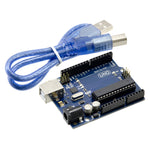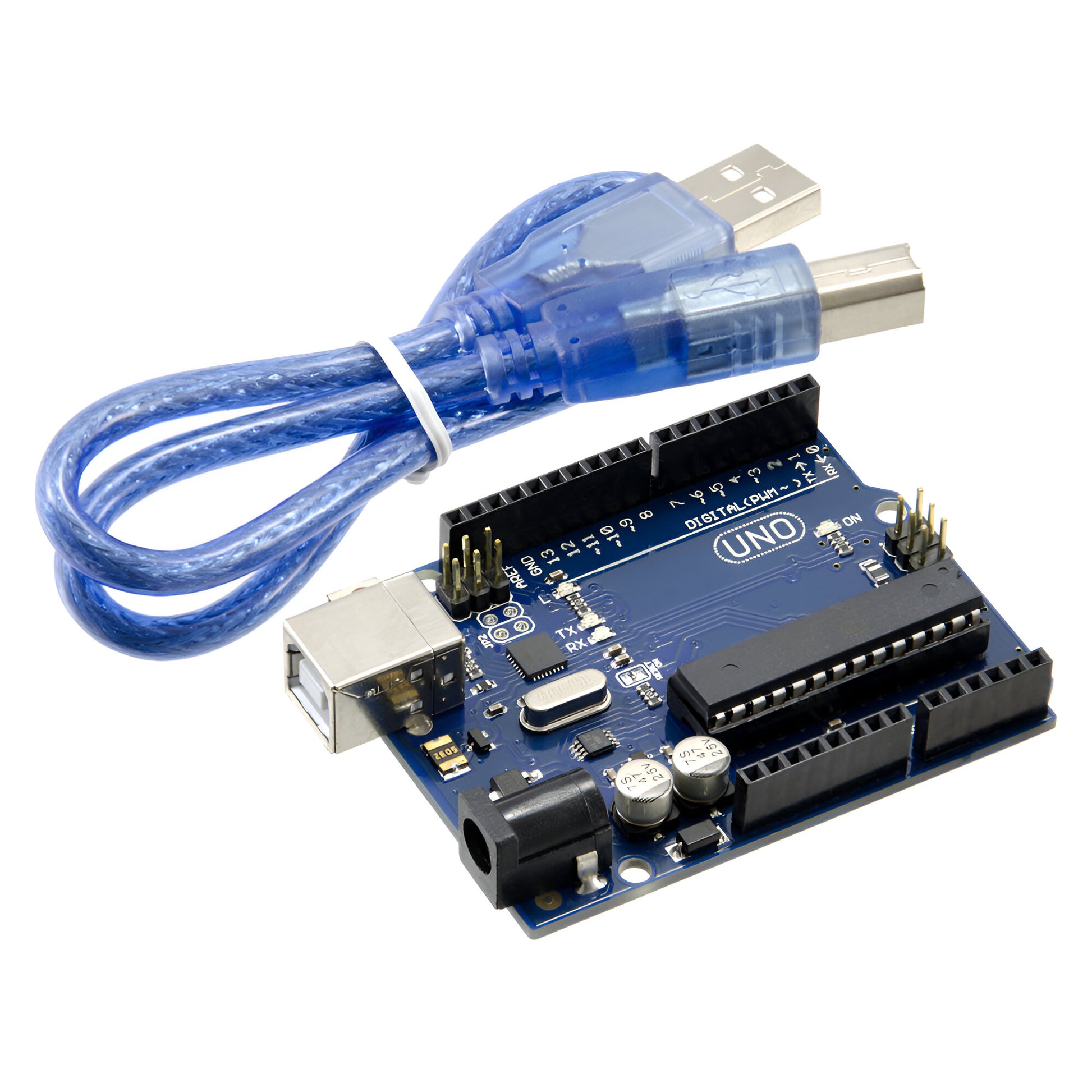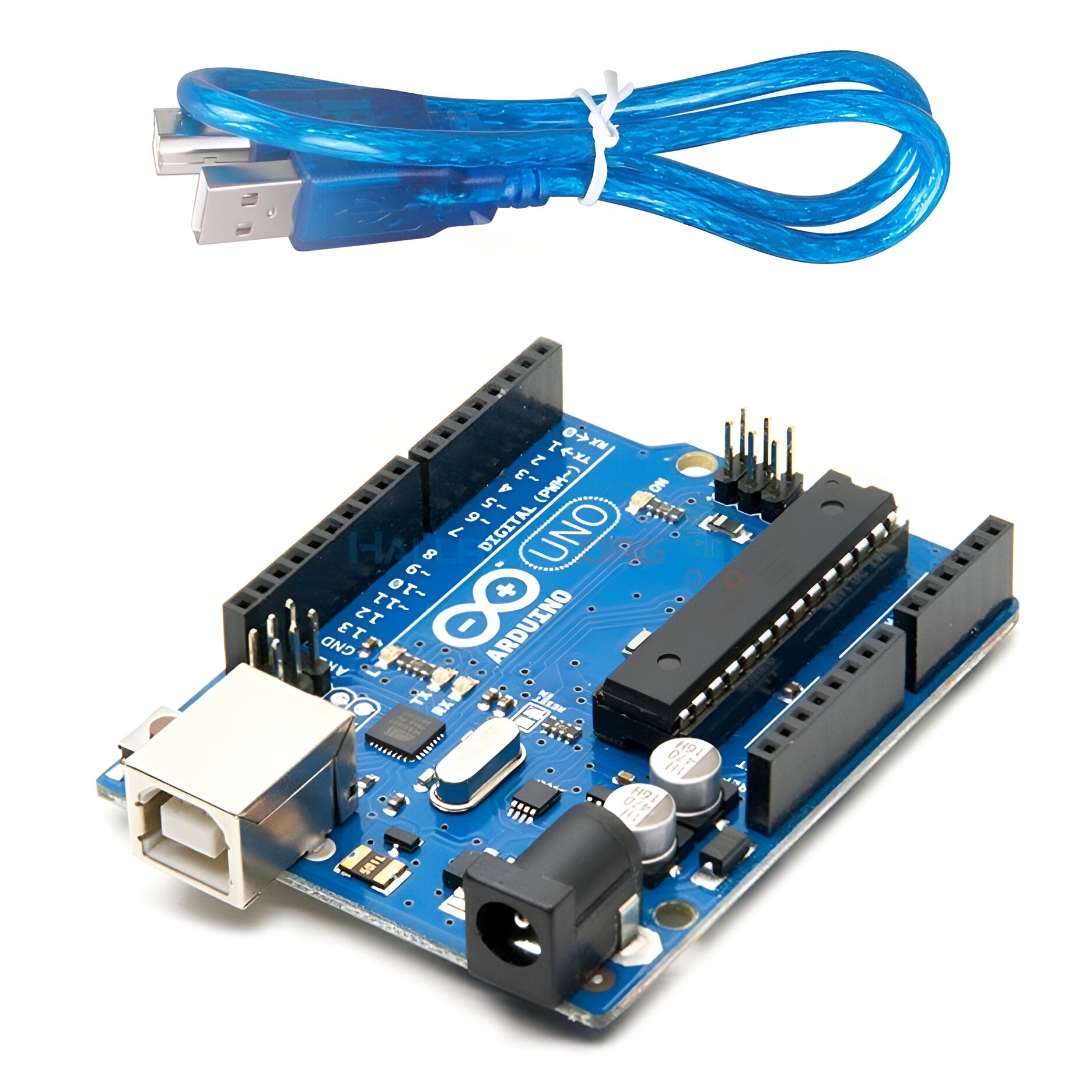
Regular price
$22.50 AUD
Regular price
Sale price
$22.50 AUD
The Uno R3 is a microcontroller board based on the ATmega328 chip from MicroChip. It has 14 digital input/output pins (of which 6 can be used as PWM outputs), 6 analogue inputs, a 16 MHz crystal oscillator, a USB Type B connection, a DC Power Jack, an ICSP header, and a reset button.
It contains everything needed to support the microcontroller; simply connect it to a computer with a USB cable or power it with an AC-to-DC adapter (you'll need one with a standard 5.5mm DC Barrel Jack connection) or battery to get started.
What you get:
- 1 x Uno R3 Board
- 1 x USB cable
Features:
- This board is a generic variant, built from the open source Arduino® Uno R3 design. It is a compatible replacement for the official Arduino® Uno, however, we recommend and guarantee that only the official variant will work with all Arduino® educational resources wherever it is referenced. Buying official also supports the creators and their future innovations.
- Microcontroller: ATmega328 (datasheet)
- Operating Voltage: 5V
- Input Voltage (recommended): 7-12V
- 2.1mm Centre-Positive Barrel Jack (Regulates Voltage from 7-12V DC) - The Uno will use any 7-12V source here, as long as it is connected center positive and is 7-12V DC. Here's a suitable Australian power supply.
- Input Voltage (limits): 6-20V
- Digital I/O Pins: 14 (of which 6 provide PWM output)
- Analogue Input Pins: 6
- DC Current per I/O Pin: 40 mA
- DC Current for 3.3V Pin: 50 mA
- Flash Memory: 32 KB (ATmega328) of which 0.5 KB used by bootloader
- SRAM: 2 KB (ATmega328)
- EEPROM: 1 KB (ATmega328)
- Clock Speed: 16 MHz
- Note that the USB to Serial conversion chip is an Atmel MEGA16U2 which is the same microcontroller as the original Arduino Uno.


